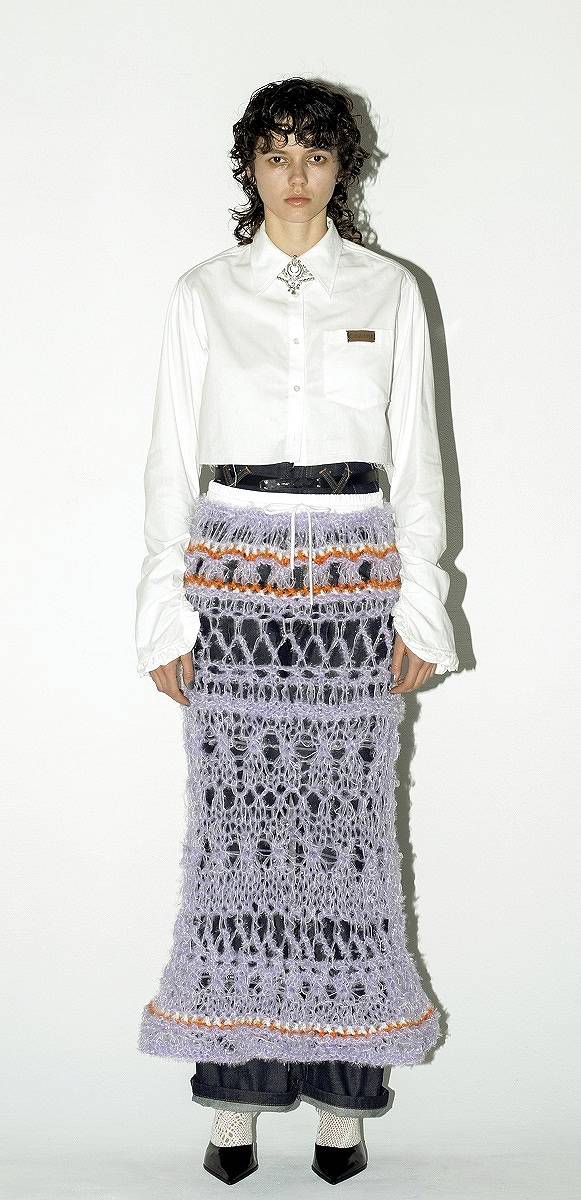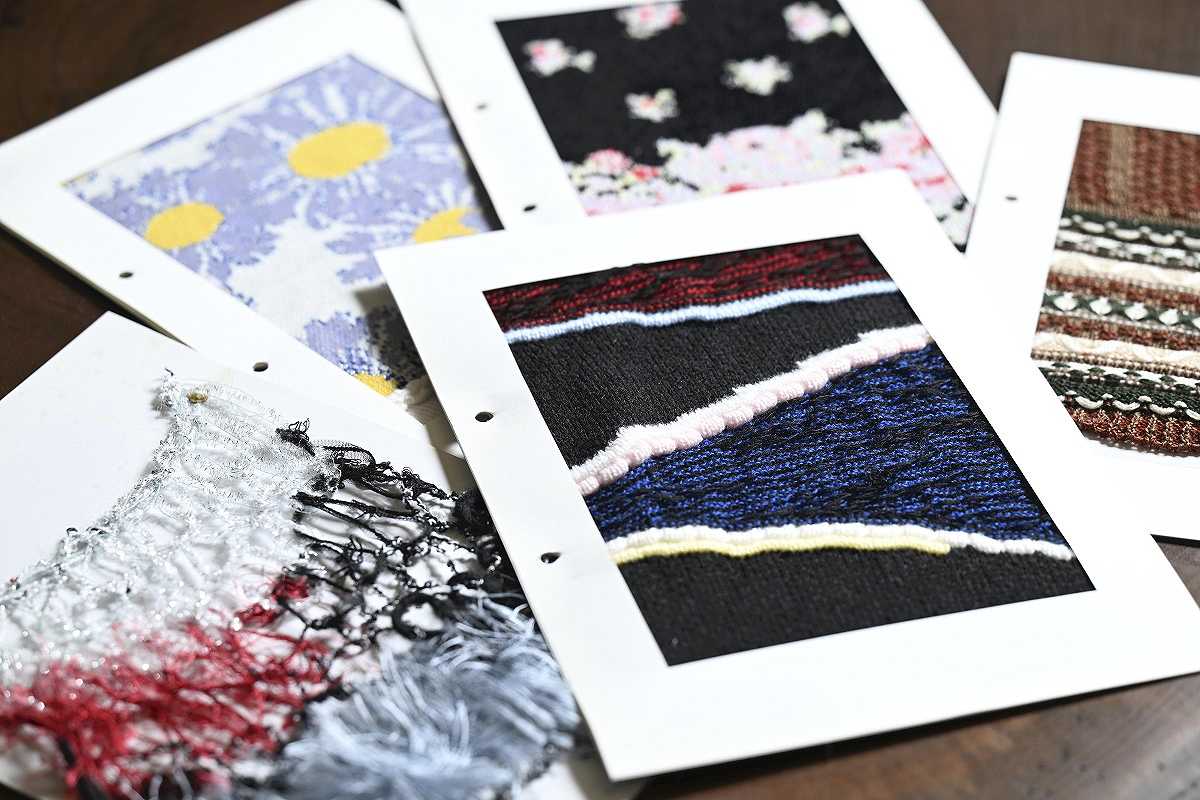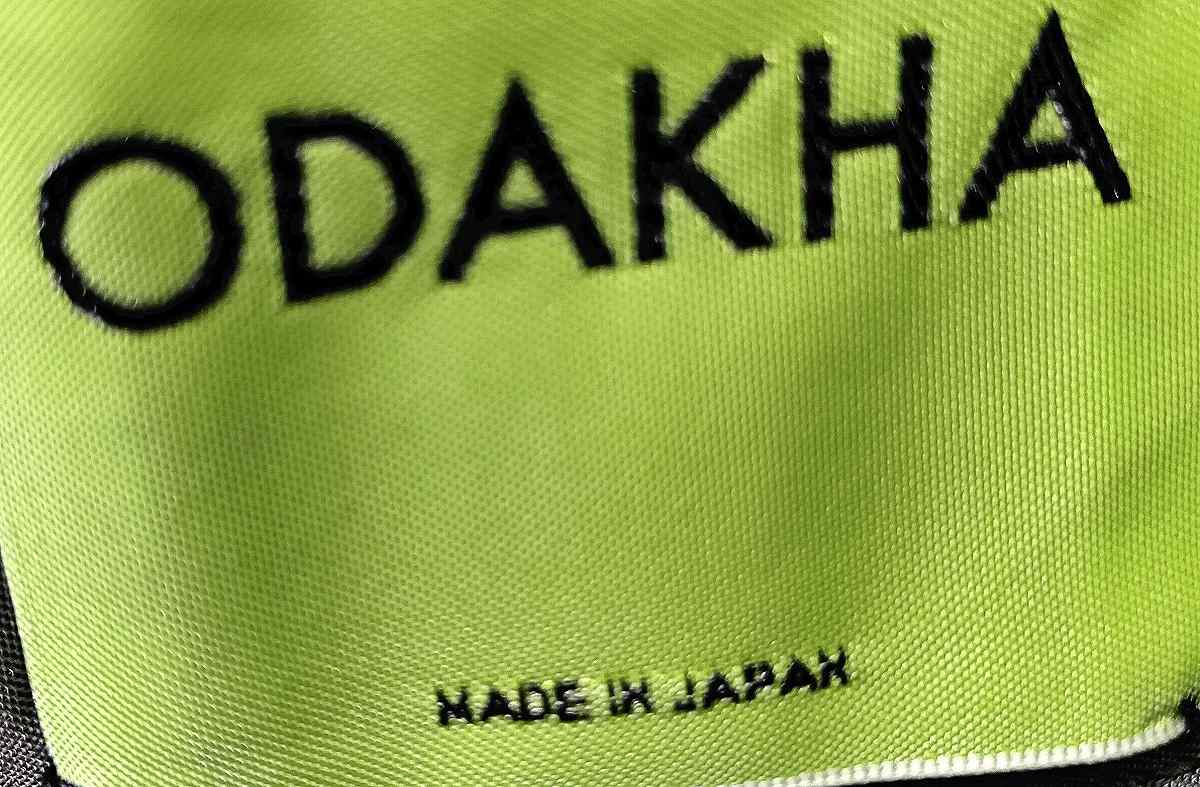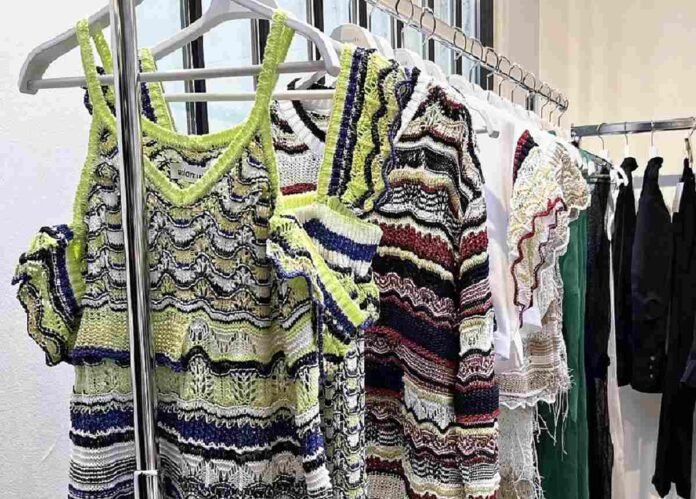This photo shows a number of Odaka’s works, including Crazy Knit, frontal, at a joint exhibition in Paris in September 2022, which marked her international debut.
12:00 JST, August 2, 2024
It’s been ten years since fashion designer Mari Odaka, who excels in knitting, launched her own brand. Last year, she changed the brand name from Malamute to Odakha, an alternative spelling of her last name, to better promote her brand abroad.
Odaka tries to appeal to the brand’s Japanese roots. “I want to nurture the brand so that it represents Japanese knitwear,” she said.
A pale yellow sweater with large daffodil patterns and a knitted skirt with a soft, lace-like mesh fabric are part of Odaka’s fall/winter 2024 collection. The inspiration behind the sweater includes daffodils painted by David Hockney and the film “Paterson”, directed by Jim Jarmusch, which follows the days of one man’s humble life.

This skirt with a lace-like mesh texture is one of Odaka’s new works for the fall/winter 2024 collection.
“People’s daily lives are often gloomy in autumn and winter, so I drew a cheerful sense of happiness for them,” she said with a laugh.
Odaka became fascinated with knitting while studying at Bunka Fashion Graduate University.

These samples show knitted fabrics Odaka created in 2014, the year she made her professional debut as a fashion designer. Her works were already very colorful.
“You begin [knitting] by choosing the yarns. You can create the fabric with the texture you like,” she said. “I found it fascinating that there is so much freedom.”
After graduating, she worked for a knitting company. In 2014, she founded Malamute because she “wanted to design under my own brand,” she said.
Right after she started her own business, she started challenging herself to use different types of yarns to create knitwear that was full of variety. She then called them “Crazy knit”, which became a nickname for her brand. She received the Tokyo Fashion Award in 2021 and won the chance to participate in a joint exhibition in Paris from September to October in 2022.
“Buyers in Europe who had seen all kinds of clothes told me directly that [my works are] “Interesting,” she recalled.
Around the same time that she was getting a good response during her first overseas adventure, knitting factories that she had a great working relationship with were closing down one after the other. Now that the world was in her sights, she wanted to let other countries know that she had done her work in Japan. So she changed the brand name from Malamute to Odakha, so that it would be more recognizable as being from Japan, even though she was attached to the old name, which was derived from the large Alaskan Malamute dog breed. She also added the words “Made in Japan” to the labels.

A label for an Odakha branded item with the text ‘Made in Japan’ on it.
Her dedication to “Made in Japan” continues even after the brand’s name change. She currently works with around 10 knitting factories in the country, incorporating the craftsmanship of the artisans into her work. She not only aims to work on technical innovation for knitting, but also to apply different ideas to the processing of knitting texture by using other traditional techniques, such as tie-dyeing.
“I will be working with other knitters in this country to offer unique Japanese knitting,” she said.
Her next goal is to have her own show in Paris.



